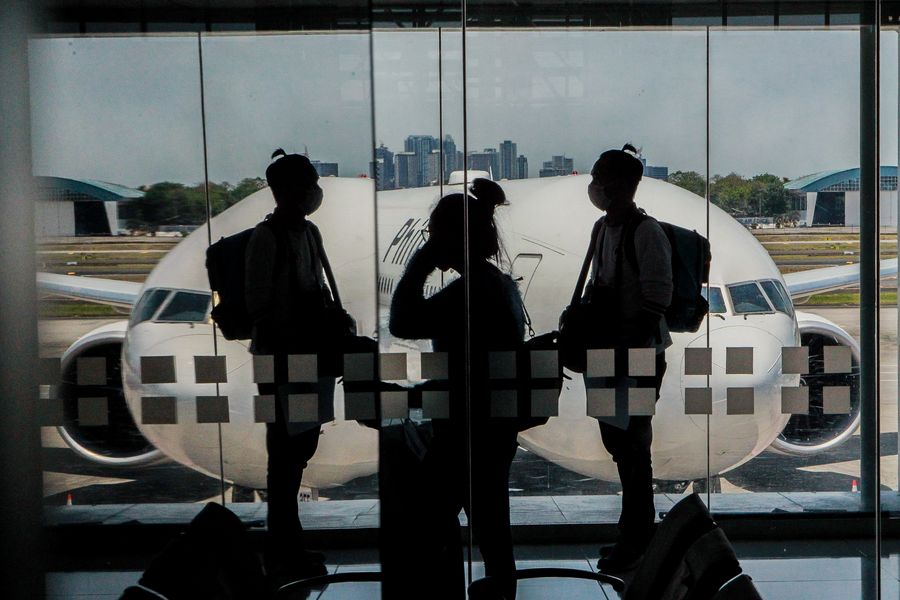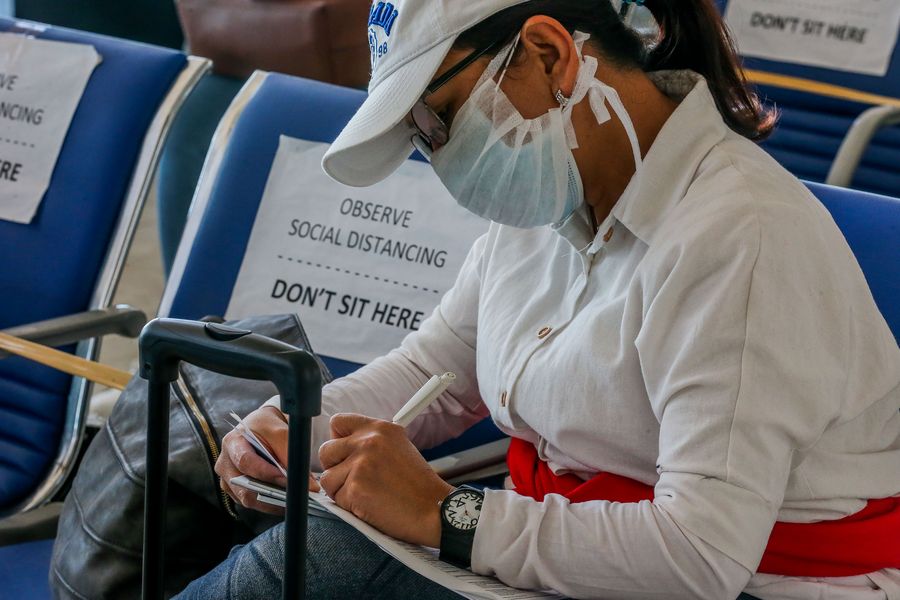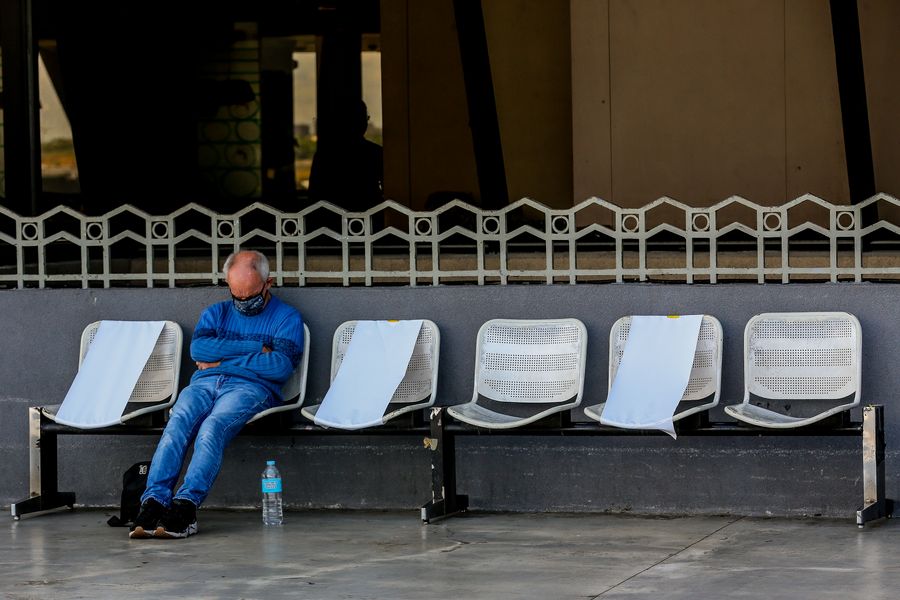
Filipino repatriates from London arrive at the Ninoy Aquino International Airport (NAIA) Terminal 2 in Pasay City, the Philippines, on May 11, 2020. (Xinhua/Rouelle Umali)
Presidential spokesperson Harry Roque said all arriving passengers will be swabbed, tested, and will not be allowed to go home until a test result yielded negative for COVID-19.
MANILA, May 11 (Xinhua) -- All foreigners and Filipinos arriving in the Philippines need to undergo testing for the COVID-19 and quarantine to stem the spread of the virus, Presidential spokesperson Harry Roque said on Monday.
"Mandatory testing and facility quarantine should apply to all arriving passengers at airports," Roque said in a daily virtual media briefing.
He said all arriving passengers will be swabbed, tested and will not be allowed to go home until a test result yielded negative for the virus.

A Filipino repatriate from London fills out a form after arriving at the Ninoy Aquino International Airport (NAIA) Terminal 2 in Pasay City, the Philippines, on May 11, 2020. (Xinhua/Rouelle Umali)
While waiting for the results of the tests, arriving passengers will be brought to a government-run facility for quarantine for about two to five days, where they will be monitored.
Those who will be tested positive for the virus will be transferred to a hospital or to a temporary health facility set up by the government for further treatment.
If results are negative, individuals will be released and allowed to their planned destinations.
Roque said the government will pay for the costs of operating quarantine facilities for overseas Filipino workers.

A foreigner falls asleep on a bench while waiting to be allowed to enter the airport for his flight at the Ninoy Aquino International Airport (NAIA) Terminal 1 in Paranaque City, the Philippines, on May 11, 2020. (Xinhua/Rouelle Umali)
Non-overseas Filipinos and foreign nationals will pay for the test and accommodation cost at the quarantine facilities, he added.
The Philippine government announced "a temporary travel ban on foreigners" entering the Philippines starting March 22. Now only foreign spouses and children of the Filipinos, foreign government and international organization officials accredited to the Philippines will be allowed to enter the country.
According to the Philippine government, as of Monday, the number of COVID-19 infection cases in this southeast Asian country rose to 11,086, including 726 deaths and 1,999 recoveries.■



